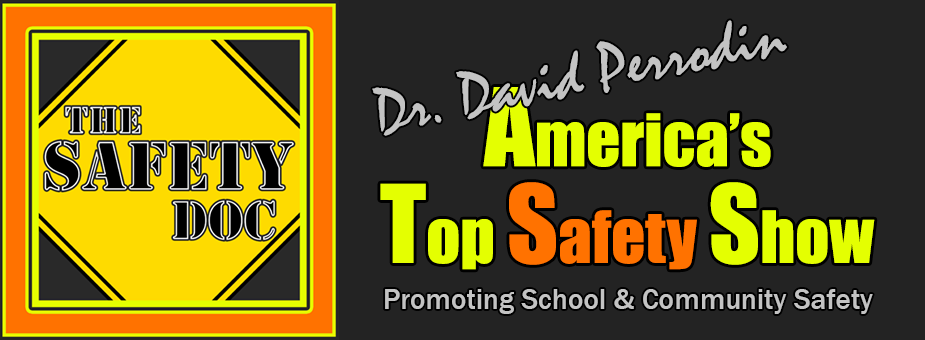How Coronavirus Changed America’s Social Contract | SAFETY DOC PODCAST #125
[Podcast] Doc does a face validity check in, describes the American social contract, and then identifies ways personal privacy changed this month and how those changes will likely be permanent.
DIRECT LINK to MP3 of this Episode: https://tinyurl.com/SDP125-AUDIO
ARE WE ALL DEPUTIZED?
Doc notes counties and communities encouraging residents to report alleged violations of social gathering decrees and how such measures pressure people to conform – even if it’s unlikely local government would allocate strained, depleted police units to investigate a large family’s backyard barbecue.
WHAT IS THE SOCIAL CONTRACT?
It’s an implicit agreement among the members of a society to cooperate for social benefits, for example by sacrificing some individual freedom for state protection. This has been around for thousands of years and through the rise and fall of civilizations. We pay taxes to government and in return the government provides a military to protect us from invasion. We restrict the items we take on planes and submit to invasive screening in order to have safe air travel.
PATRIOT ACT of 2001 CHANGED THE SOCIAL CONTRACT
The PATRIOT Act was quickly developed as anti-terrorism legislation in response to the September 11, 2001 attacks. The large and complex law received little Congressional oversight and debate. Critics caution that it gives sweeping search and surveillance to domestic law enforcement and foreign intelligence agencies and eliminates checks and balances that previously gave courts the opportunity to ensure that those powers were not abused.
FIVE WAYS THE PATRIOT ACT EMPOWERED GOVERNMENT
(1) Information sharing across agencies without need for authorizations; (2) Roving wiretaps across company and personal computers, networks and cell phones; (3) “215 Orders” which are gag rules preventing people from talking; (4) “Sneak and Peak” warrants which let authorities search a home or business without notification of the target of the probe; and (5) Material support such as investing anyone that made a donation to, or otherwise supported, an organization that could be involved in terrorism. This might result in the government seizing computers, records and other personal items.
THOMAS HOBBES’ LEVAITHAN
Written during the English Civil War (1642–1651), Leviathan argues for a social contract and rule by an absolute sovereign. Hobbes wrote that civil war and the brute situation of a state of nature (“the war of all against all”) could only be avoided by strong, undivided government. In other words, Hobbes believed that a basic form of government was necessary otherwise people would default to a perpetual state of being “brutish” and fighting with each other for food, shelter or beliefs.
FIVE WAYS CORONAVIRUS WILL LIKELY EXPAND THE PATRIOT ACT
Per Edward Snowden, the US government, for instance, is reportedly in talks with tech companies like Facebook and Google to use anonymized location data from phones to help track the spread of COVID-19. While some say the measure could be a helpful tool for health authorities to track the virus, others have expressed concerns.”
- TRACK YOUR PHONE. This is an easy argument as the government can posture this practice as necessary to inform citizens if they have been subjected to persons testing positive for a virus or to guide them from “hot zones.” Doc describes several ways phones could be controlled to shape the user’s behavior, such as turning them off when people aren’t social distancing;
- VEHICLE GPS could be tracked in ways similar to phones;
- DNA INFORMATION willingly surrendered to learn about their ancestors might be used to identify people more or less likely to survive specific viruses. This could result in months of quarantines for “at risk” people solely due to their genetic code.
- WEARABLE FITNESS COMPUTERS could be monitored for heart rate, pulse, and body temperature. If your temperature is above 100, you might be quarantined.
- SURVEILLANCE CAMERAS saturate America as people have them on doorbells, dashes, stores, schools, etc. Also, police in Great Britain are using drones to capture images of people engaged in “non-essential” activities such as watching a sunset at a park. These images were shared with the public and resulted in social shaming – and could lead to separation from employment.
FOLLOW
- PodBean MP3 https://tinyurl.com/SDP125-AUDIO
- Apple Podcasts http://tinyurl.com/SafetyDocApplePodcasts
- SUBSCRIBE to “The Safety Doc” YouTube channel https://tinyurl.com/SDP125-VIDEO
- The 405 Media http://the405media.com/the-safety-doc/
- SAFETY DOC WEBSITE & BLOG safetyphd.com
- Follow David & The Safety Doc Podcast on Twitter @SafetyPhD
- Email Dr. Perrodin thesafetydoc@gmail.com
Looking for Dr. Timothy Ludwig, PhD?
Dr. Perrodin’s “Safety Doc Podcast” negotiates school and community safety. To be informed about industrial safety, please contact Appalachian State University Professor Dr. Timothy Ludwig, PhD, at www.safety-doc.
This is episode #125 of The Safety Doc Podcast and was published on March 29, 2020
Purchase Dr. Perrodin’s Book: Schools of Errors – Rethinking School Safety in America

